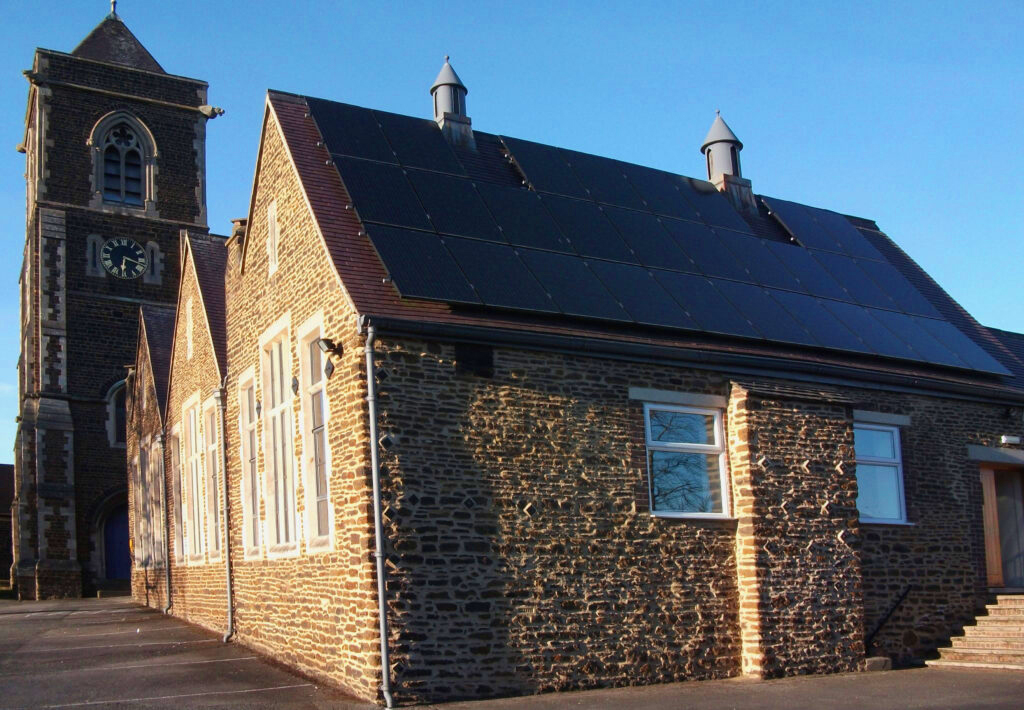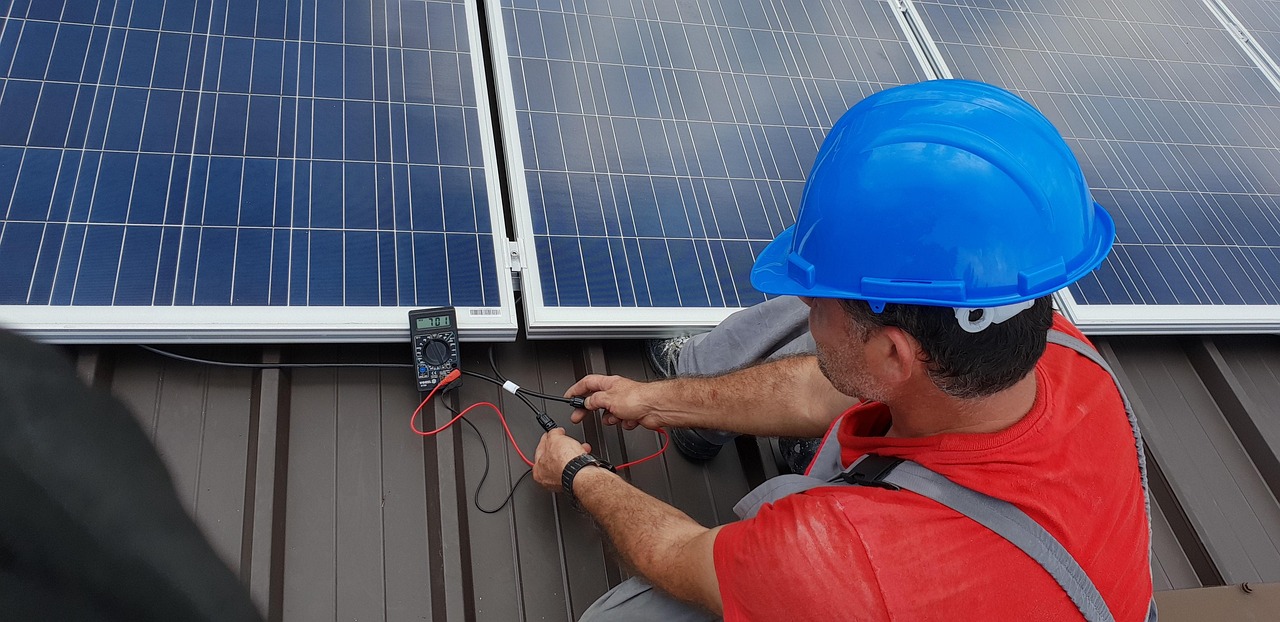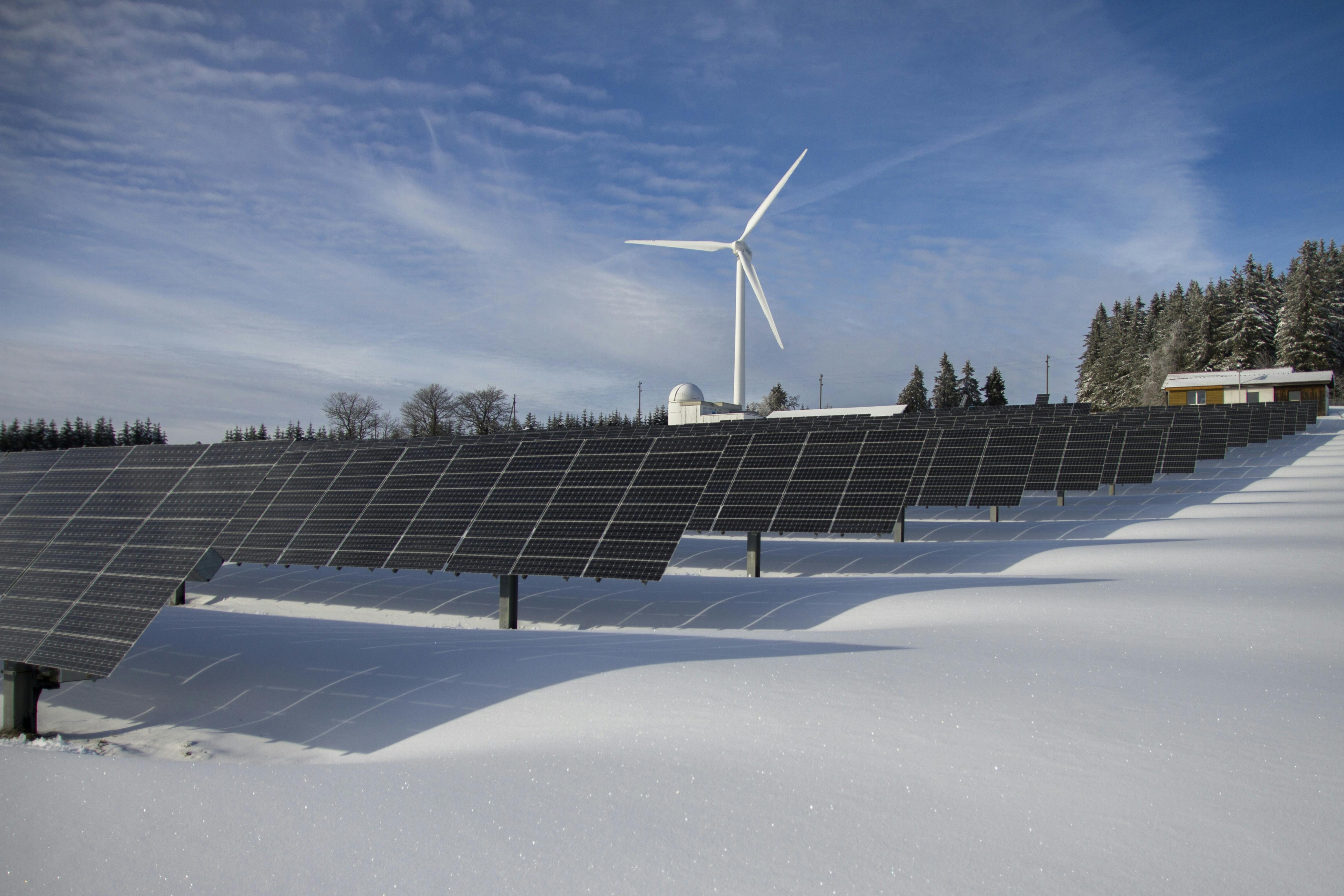How Many Solar Panels Do I Need to Power My House?
Use our solar panel calculator to easily figure out how many solar panels you would need to power your house.

Answering the question “how many solar panels do I need?” is the first step towards energy independence. Unfortunately, there isn't a single answer to this question, as the number of panels you'll need depends on factors like your energy consumption, the efficiency of the solar panels, and your specific location.
Key Takeaways:
To get an exact answer, our solar panel calculator can help. It provides a tailored estimate based on your home’s energy needs, location, and other factors, giving you a clear idea of how many solar panels you'll need to power your house.
Calculating How Many Solar Panels You Need
Figuring out the exact number of solar panels your home requires is essential for balancing cost and efficiency. Instead of relying on complicated maths or guessing, you can use a straightforward method to get an accurate estimate.
Start by using our UK solar panel calculator, where you’ll simply enter your postcode and answer a few quick questions. This process helps you determine the ideal number of panels needed to meet your energy needs without overspending on excess capacity.
By accurately sizing your solar panel system, you ensure that your investment is both practical and cost-effective. Let’s delve into the details and see how our calculator can guide your decision-making process.
Our Solar Panel Calculator
Our solar panel calculator is designed to be both simple and accurate, making it easy to determine how many solar panels you need to power your home.
Here’s how it works: the calculator considers the average sunlight your location receives annually, along with specific details about your property, to estimate the potential energy you could generate each year. Based on this data, it recommends the ideal number of solar panels and the most suitable system for your needs.
For example, Oxford has an average solar intensity of 524 w/m2, which means an average home with solar panels in Oxford can generate around 4767 kWh of energy annually.
To get started, simply provide some basic information about your home. Our calculator will handle the rest, answering the question “how many solar panels do I need” in just seconds.
How Many Solar Panels to Power My House?
The number of solar panels needed to power your home depends largely on the size of your house and its typical energy usage. Here’s a detailed breakdown based on the number of bedrooms:
- 1-2 Bedrooms: A smaller home with 1-2 bedrooms typically requires 6-10 panels to handle essential power needs.
- 3 Bedrooms: A standard 3-bedroom home generally needs around 10-14 panels. This number accounts for the additional energy used by appliances, lighting, and other household activities typical of a medium-sized family.
- 4 Bedrooms: Larger homes with 4 bedrooms often require 14-17 panels. With more rooms to power and potentially more inhabitants, energy needs increase, necessitating a higher number of panels.
- 5 Bedrooms: A 5-bedroom home may require 17-20 panels. These homes often have higher energy consumption due to additional appliances, electronics, and higher occupancy.
- 6+ Bedrooms: Very large homes with 6 or more bedrooms can require 20 or more panels.
The exact number of panels also depends on the efficiency of the solar panels chosen and how much sunlight your location receives, but this guide offers a solid starting point based on typical home sizes.
Number of Solar Panels Needed Based on Energy Consumption
Your household's electricity consumption plays a crucial role in determining the number of solar panels you’ll need. Since energy needs vary, it’s essential to understand your specific usage.
Our solar panel calculator offers tailored estimates based on your unique energy consumption. Here’s a general breakdown:
- Small Household (1-2 people): Consumes around 2,500 kWh annually, typically requiring 8-10 solar panels.
- Medium Household (3-4 people): Uses approximately 3,500 kWh per year, needing 12-14 panels.
- Large Household (5+ people): Consumes roughly 4,500 kWh annually, requiring 16-18 panels.
By using our calculator, you’ll receive accurate recommendations based on your household’s specific energy usage, ensuring your solar system is perfectly sized to meet your needs.
How to Calculate Your Household's Electricity Consumption
Understanding how many solar panels to power a house starts with knowing your electricity consumption, and it's easier than you might think. Here are some simple methods to determine your energy usage:
1. Check Your Electricity Bills - The easiest way to estimate your electricity consumption is to look at your past electricity bills. These bills usually provide a summary of your monthly or annual energy usage in kilowatt-hours (kWh). By reviewing your bills from the past year, you can calculate your average annual consumption.
2. Use Energy Monitoring Tools - Many modern homes now feature smart meters or energy monitoring devices. These tools offer real-time data on your energy usage, which allows you to monitor it more closely. If you have a smart meter or monitoring device, you can typically access your consumption data through a smartphone app or an online portal.
Knowing your electricity consumption is essential for correctly sizing your solar panel system. A system matched to your energy needs ensures maximum savings and minimises your home’s environmental impact.
Additionally, considering factors like seasonal variations in energy use can further refine your understanding of consumption patterns, leading to a more accurate solar panel setup.
Factors That Can Impact Your Solar Panel Needs
While understanding your electricity consumption is crucial, other factors can significantly influence the number of solar panels you need to power your home. Here are two key considerations:
1. The Direction and Tilt of Your Roof
The orientation and angle of your roof relative to the sun are crucial factors in determining the efficiency of your solar panel system. Here's how these elements affect solar energy production:
1. Roof Orientation - For optimal solar energy capture, your roof should ideally face south. South-facing roofs receive the most direct sunlight throughout the day, making them the best for solar panel installations. However, roofs facing east or west can still generate significant amounts of solar energy. In such cases, you might need to install panels on both sides of the roof to maximise energy production. For more details on how to assess your roof's capacity, check out our guide: How Many Solar Panels Will Fit on My Roof?
2. Roof Tilt - The angle or tilt of your roof also impacts the efficiency of solar panels. The ideal tilt angle for solar panels typically matches your geographical latitude. However, this angle can vary based on your location and the time of year you want to optimise energy production. Some mounting systems allow you to adjust the tilt angle to achieve the best performance throughout the year.
To ensure that you get the most out of your solar panel system, it's advisable to consult with a professional solar installer. They can assess your roof's orientation and tilt and recommend the best setup for your specific location. At MakeMyHouseGreen, we can connect you with certified solar installers who will provide expert advice. Additionally, check out our guide on How to Choose Solar Panel Installers for tips on selecting the right professional and identifying potential red flags.
2. The Type of Solar Panel and Its Efficiency
Not all solar panels are created equal. The type and efficiency of the panels you choose can impact how many you'll need to generate the desired amount of electricity. Here's what you need to know:
Types of Solar Panels: The three most common panel types are monocrystalline, polycrystalline, and thin-film. Each type has its own efficiency and cost considerations. Monocrystalline panels are the most efficient but more expensive. Polycrystalline panels are cost-effective but less efficient. Thin-film panels are the least efficient but can be more affordable. For a detailed breakdown of these panel types, give our comprehensive solar panel guide a read.
Efficiency Ratings: Solar panels are rated by their efficiency, which indicates how effectively they convert sunlight into electricity. Higher-efficiency panels can produce more electricity in less space. Efficiency ratings typically range from 15% to 22% or more.
To address these factors, consider your budget, available roof space, and desired energy output when choosing your solar panels. Make sure to consult with a professional installer to determine the best fit for your specific needs.
3. Roof Size and Available Space
The size of your roof directly impacts how many solar panels you can install. A larger roof can accommodate more panels, leading to higher energy production. However, the usable space may be limited by obstacles like chimneys, vents, or skylights that restrict where panels can be placed.
Additionally, factors like shading from trees or nearby buildings can reduce the effective area for solar panels. Accurately assessing your roof’s size and layout is essential to maximise your solar panel installation and achieve the desired energy output.
How Much Would Solar Panels Cost for Your House?
Calculating how many solar panels you need to power a house is only part of the process; understanding the associated costs is just as crucial. For detailed information on solar panel costs, including the system, installation, and maintenance expenses, we recommend exploring our comprehensive guide.
This guide also highlights potential long-term savings, helping you make an informed decision. Additionally, our solar panel calculator provides an estimated cost tailored to your specific details, simplifying the cost estimation process and giving you a clear view of the financial aspects.
Recommended Guide:How much do solar panels cost?
Final Thoughts
In conclusion, determining how many solar panels you need to power your home is crucial. MakeMyHouseGreen's solar panel calculator offers an accurate solution to this.
We understand that investing in solar panels is a major financial decision. Thus, we encourage you to further explore our green guides - learn about whether solar panels are worth it and how they work with smart metres.
Ready to see what you can save?
Our solar calculator is 100% free to use. Enter your postcode below to get started.

Based on 400+ Trustpilot reviews






